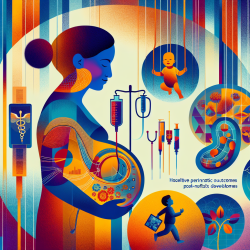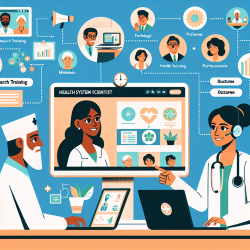In the field of children's mental health, effective resource allocation is crucial to ensure that those in need receive appropriate care. The research article "Resource Intensity for Children and Youth: The Development of an Algorithm to Identify High Service Users in Children’s Mental Health" introduces the Resource Intensity for Children and Youth (RIChY) algorithm as a decision-support tool aimed at addressing this challenge. This blog post explores how practitioners can enhance their skills by implementing insights from this research.
Understanding the RIChY Algorithm
The RIChY algorithm was developed to identify children and youth who require more intensive mental health services. It utilizes data from the interRAI Child and Youth Mental Health instruments to predict service complexity and inform resource allocation decisions. By categorizing individuals based on their level of need, the algorithm aids practitioners in prioritizing clients who require community- or facility-based resources.
Implementing the RIChY Algorithm in Practice
Practitioners can leverage the RIChY algorithm to make informed decisions about service provision. Here are some ways to incorporate its insights into practice:
- Data-Driven Decision Making: Utilize the algorithm's categorization to assess the intensity of services needed for each child or youth. This approach ensures that resources are directed towards those with the highest needs.
- Comprehensive Assessments: Conduct thorough assessments using interRAI tools, which provide detailed insights into a child's strengths, needs, and risk factors. This comprehensive data is essential for accurate RIChY scoring.
- Collaborative Planning: Engage with multidisciplinary teams to interpret RIChY scores and develop tailored intervention plans. Collaboration enhances the accuracy of resource allocation decisions.
- Ongoing Monitoring: Regularly review and update assessments to reflect changes in a child's condition or circumstances. This dynamic approach ensures that service provision remains aligned with current needs.
Encouraging Further Research
The development of the RIChY algorithm highlights the importance of evidence-based tools in mental health care. Practitioners are encouraged to engage with ongoing research to refine their understanding of resource allocation strategies. By staying informed about advancements in decision-support tools, professionals can continuously improve their practice and outcomes for children and youth.
To read the original research paper, please follow this link: Resource Intensity for Children and Youth: The Development of an Algorithm to Identify High Service Users in Children’s Mental Health.










